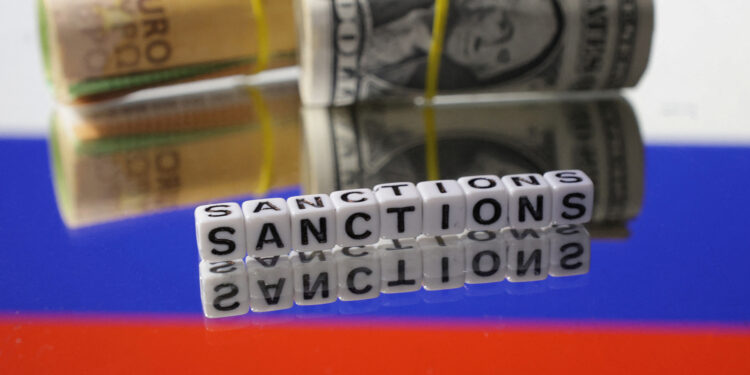European Commission President Ursula von der Line announced on Wednesday that the European Union countries have reached a new agreement to impose a 16th sanctions package against Russia, which includes a ban on aluminum imports and tightening measures against the Russian shadow fleet, according to Anatolia.
This decision comes days before the third anniversary of the Russian war on Ukraine, where the Polish presidency of the European Union confirmed that the ambassadors of the blocs supported the new package, and it is expected to be officially approved next Monday during the meeting of the foreign ministers, according to the German news agency (DPA ).
New sanctions
The new penalties, whose details have not been fully disclosed yet, include several strict procedures, most notably:
- A gradual ban on Russian aluminum imports to the European Union.
- Tightening restrictions on Russian crude oil sales, especially with regard to ships used in smuggling operations.
- Insert 73 tankers on the sanctions list, as it is believed that these ships belong to the Russian shadow fleet used to export crude oil in a way that violates international restrictions.
- New sanctions target some Russian banks, as well as a number of individuals and companies related to the Russian government.
Von der Line – through its post on the X platform – explained that the European Union is also working to prevent the defrauding of the imposed sanctions, stressing that the bloc is committed to “continuing to pressure the Kremlin.”
Sanctions on the Russian fleet
According to the German Agency, the new punitive measures target leaders and ship owners of the Russian Shadow Fleet, a network of unclear property ships, some of which are not insured, which are believed to be used to circumvent the price ceiling imposed from the West on Russian oil exports.
Reports indicate that these ships are also used to transport “stolen Ukrainian pills” in addition to concerns that they can be used to sabotage the communications cables in the Baltic and North Bahri.
According to the European Union’s statement, ships subject to sanctions will be prevented from entering the ports of member states, and the assets of their owners will be frozen inside the bloc.
European reactions
Kaya Callas, prominent diplomatic of the European Union, commented on the new package of sanctions – via the X platform – saying “by imposing stricter procedures on fraud, prohibiting new import and export, and penalties on Putin’s shadow fleet, we are closing the rear doors in front of the Russian war machine.”
“The Kremlin will not miss our resolve,” Callas added, referring to the continued European pressure against Russia.
For its part, von der Line welcomed the 16th package of sanctions, stressing that “the European Union imposes more strict measures to prevent the sanctions, by targeting more ships of the Russian Shadow Fleet, and imposing additional restrictions on imports and exports.”
The general context of penalties
Since the outbreak of the Russian -Ukrainian war on February 24, 2022, the European Union imposed 15 sanctions package against Moscow, which included several vital sectors, including:
- Prohibition of exporting crude oil and some petroleum products to the European Union.
- Eliminate some Russian banks from the “Swift” international payment system.
- Hanging the activities of many Russian media in Europe.
- Including more than two thousand Russian individuals and institutions on the European sanctions list.
The European Union affirms that these sanctions aim to weaken Russia’s ability to finance its military operations in Ukraine, while Moscow insists that these measures will not affect its political and military position.
It is expected that the meeting of the European Union’s foreign ministers – next Monday – will witness the formal approval of the sanctions, to be implemented on the third anniversary of this war, in a move that reflects the continued European determination to pressure Russia politically and economically.



